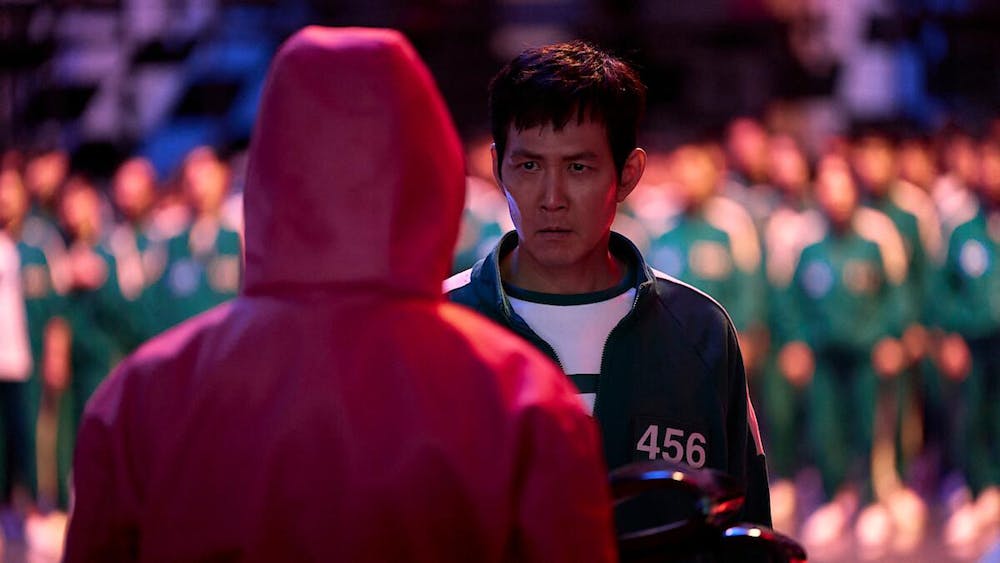This past December, Netflix released “Squid Game” season two — over three years after its first season. The hit series previously followed Seong Gi-hun (Lee Jung-jae), better known as Player 456, as he navigated — and won — the deadly contest for 45.6 billion Korean won in season one.
The show’s first season ended on a cliffhanger as Gi-hun abandoned his flight to Los Angeles after a call with the Front Man (Lee Byung-hun), the organizer of the games. Season two picks up from this moment, with Gi-hun set on confronting the Front Man and ending the games.
While season one took place almost exclusively inside the competition, this first episode was set outside of the games, starting the season off with the same tension and violence fans might expect.
In the first episode, the infamous recruiter (Gong Yoo) makes his return in a game of Russian roulette while Gi-hun builds a team to track down the Front Man. It’s clear this episode, and the second, largely serve to reinvent the plot for what was originally a single season mini-series. As this story begins to drag, the series forces some unusual character decisions to get us to a semi-believable main plotline. But after a major failure in his search for the Front Man, Gi-hun sends himself right back into the games, breaking the impression of a new storyline.
The last five episodes, which center on the games, reiterate why the original season became Netflix’s most watched non-English series of all time. The sheer shock value of these “games” — and the participants’ willingness to keep going even when faced with death — makes it impossible to look away.
What makes this season different, however, is its characters. Writer and director Hwang Dong-hyuk takes the time to give many more characters unique stories and personalities. While the show’s first season didn’t dive deep into the personal lives of many characters, this season gives us two engaging “Breakfast Club”-esque gangs to watch from the beginning. From an erratic drug addict rapper (Choi Seung-hyun) to a fierce mother (Kang Ae-sim) and her gambler son (Yang Dong-geun) to a transgender woman hoping to pay for surgery (Park Sung-hoon), there is a personality and story for every viewer to root for — or despise.
Although there are only three games this season, the variety of characters in these life-or-death circumstances makes the show well worth the watch. Hwang’s writing is realistic and raw, and every single actor rises to the occasion. Each moment of humor and levity is matched with one of heartbreak, bolstered by the cast’s ability to bring intense emotion to the screen.
But the episodes’ shocking deaths and betrayals only paid off because of how well-written and shaped these characters are, with little credit due to the games themselves, which feel lackluster compared to season one’s more memorable tug-of-war and glass bridge competitions
This season’s conclusion also feels messy and rushed — even with a huge gut punch moment and an intense cliffhanger, it’s hard to tell where the story could go next. Yet, as far as television goes, that might not be a bad thing — like it or not, audiences may still tune into season three just to see how Gi-hun’s journey in the games finally ends.
Gabriella is a senior from Los Angeles, concentrating in English, Modern Culture and Media, and Literary Arts. If she’s not at the movies, you can find her coaching the Dodgers from her dorm, plotting her future Big Brother win or perfecting her chocolate chip cookie recipe.





